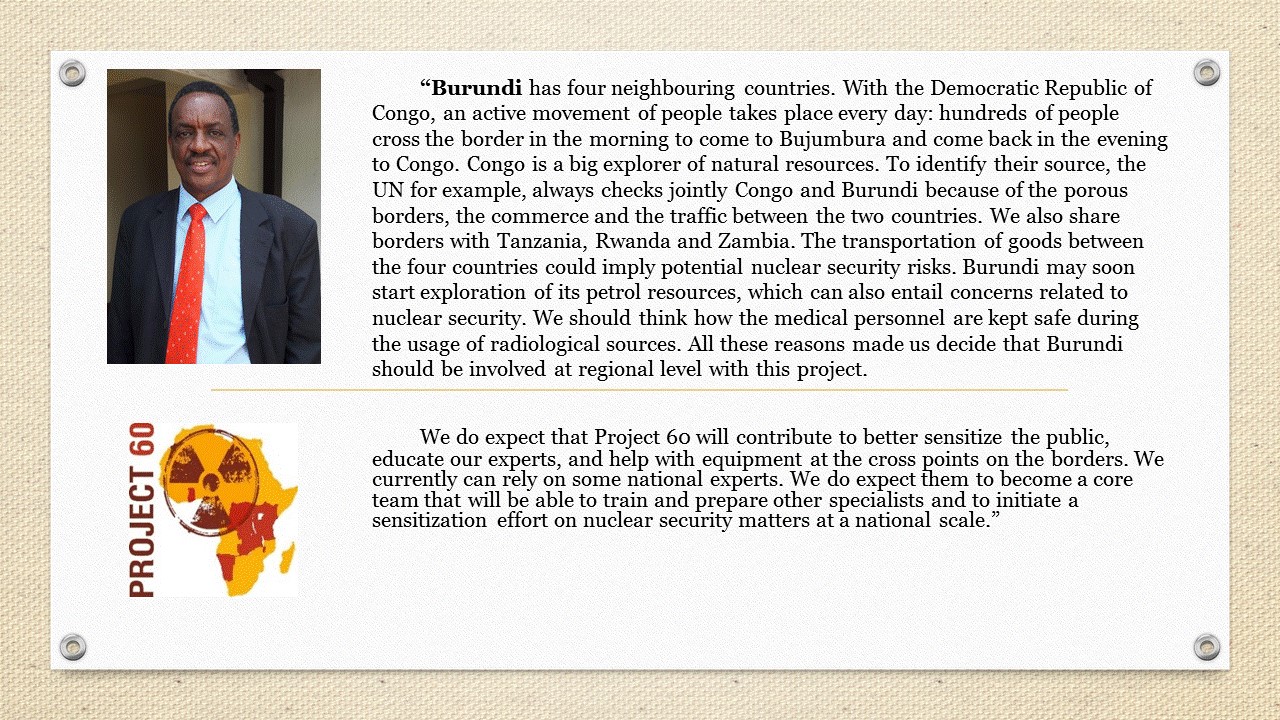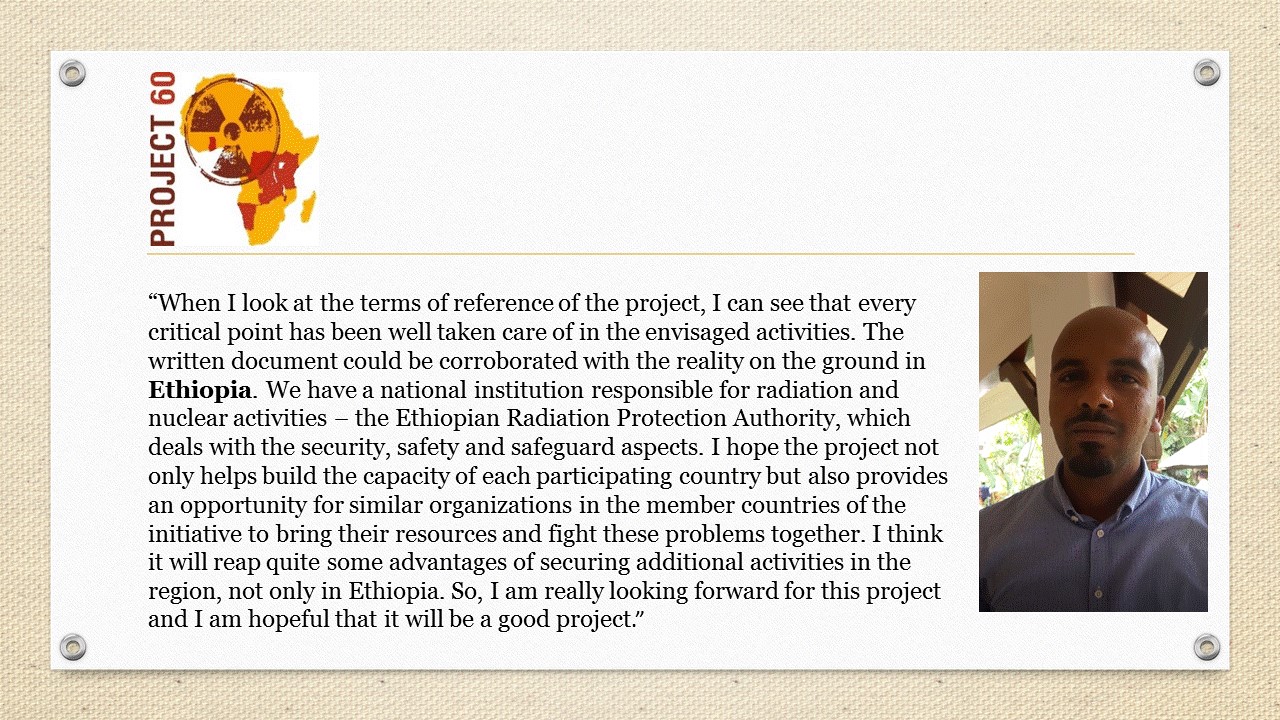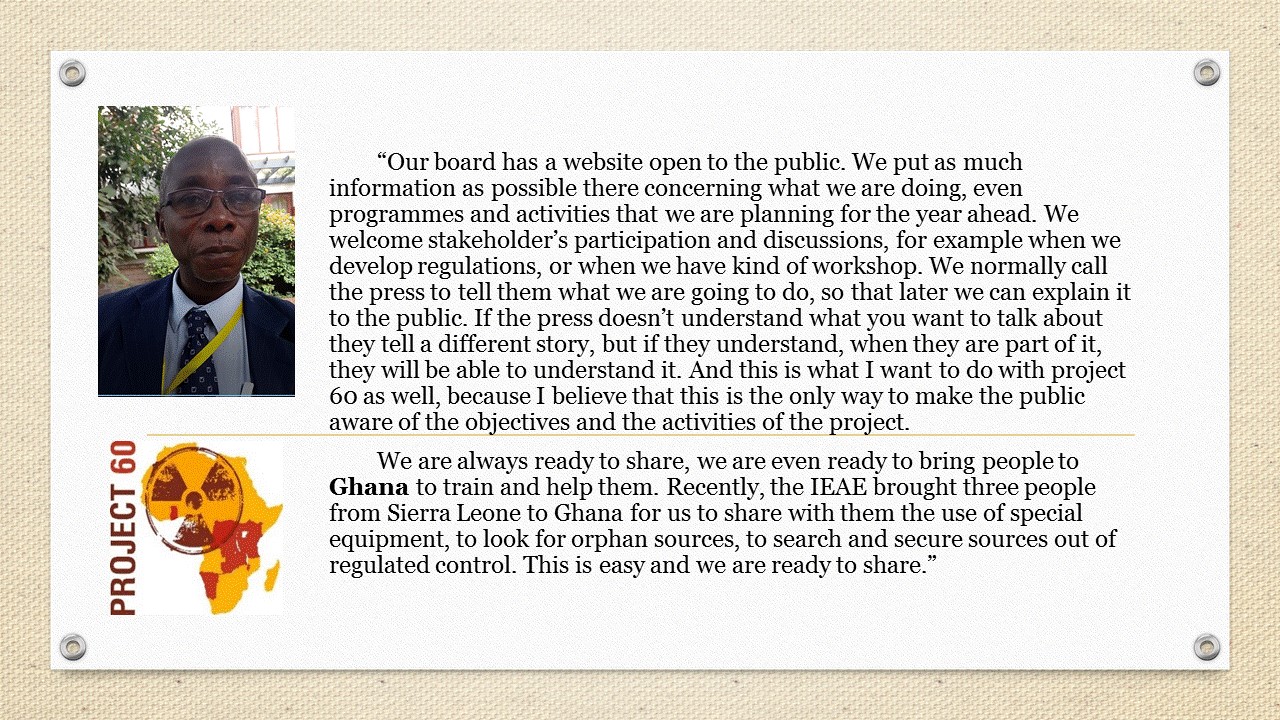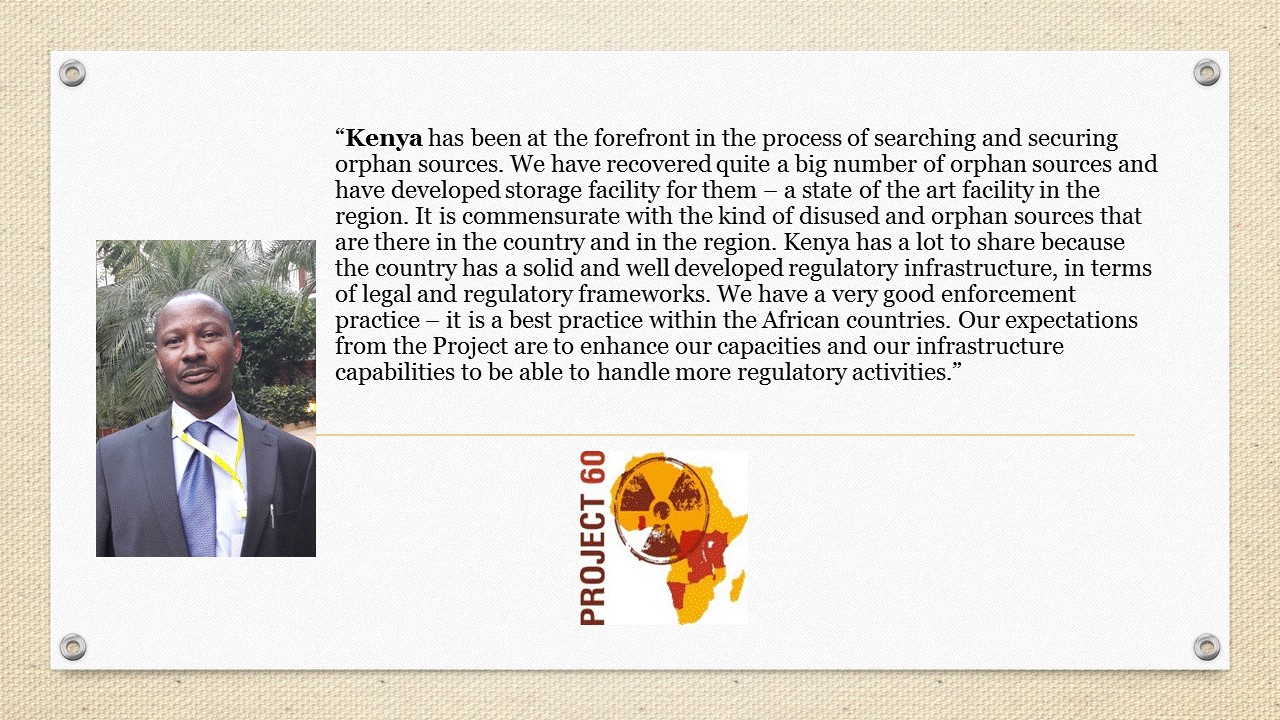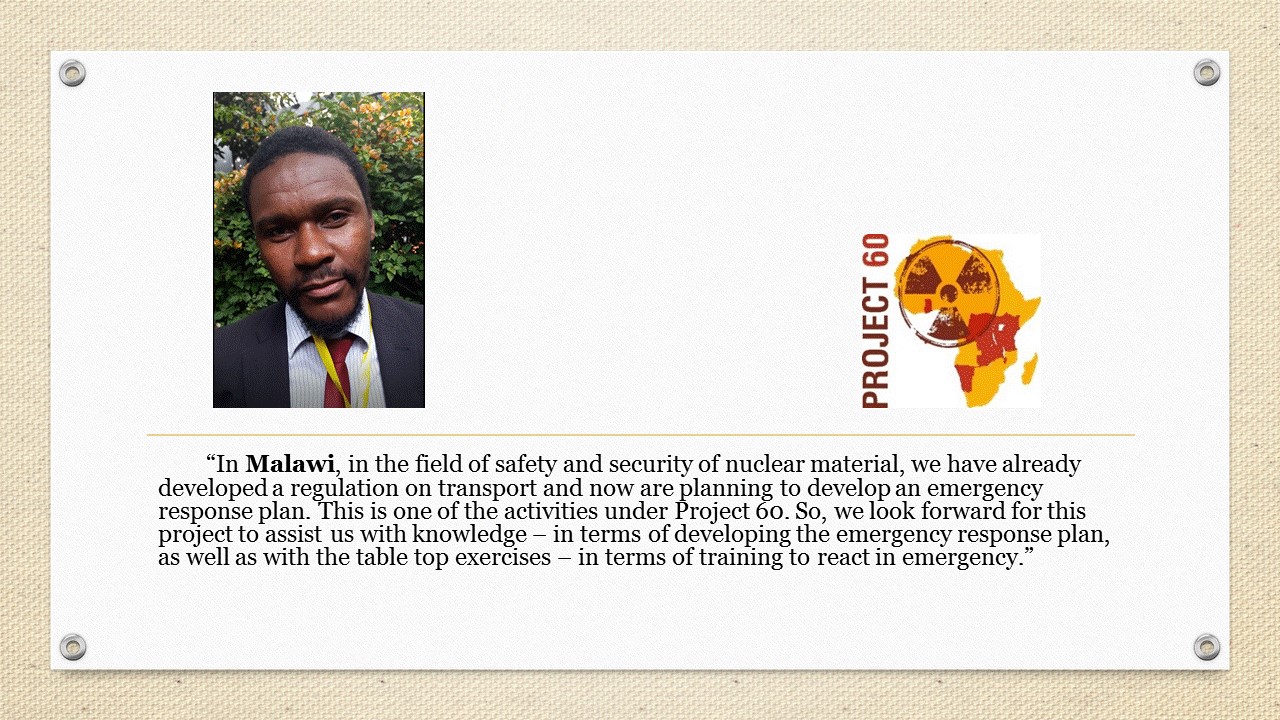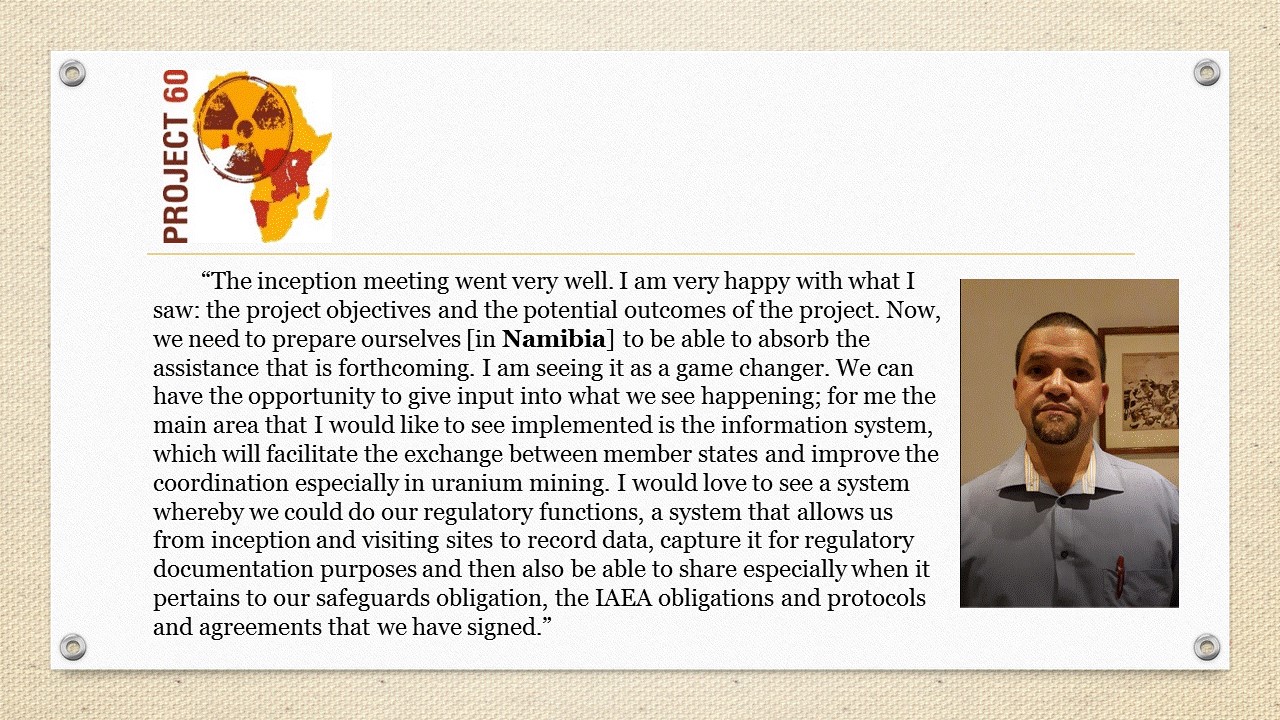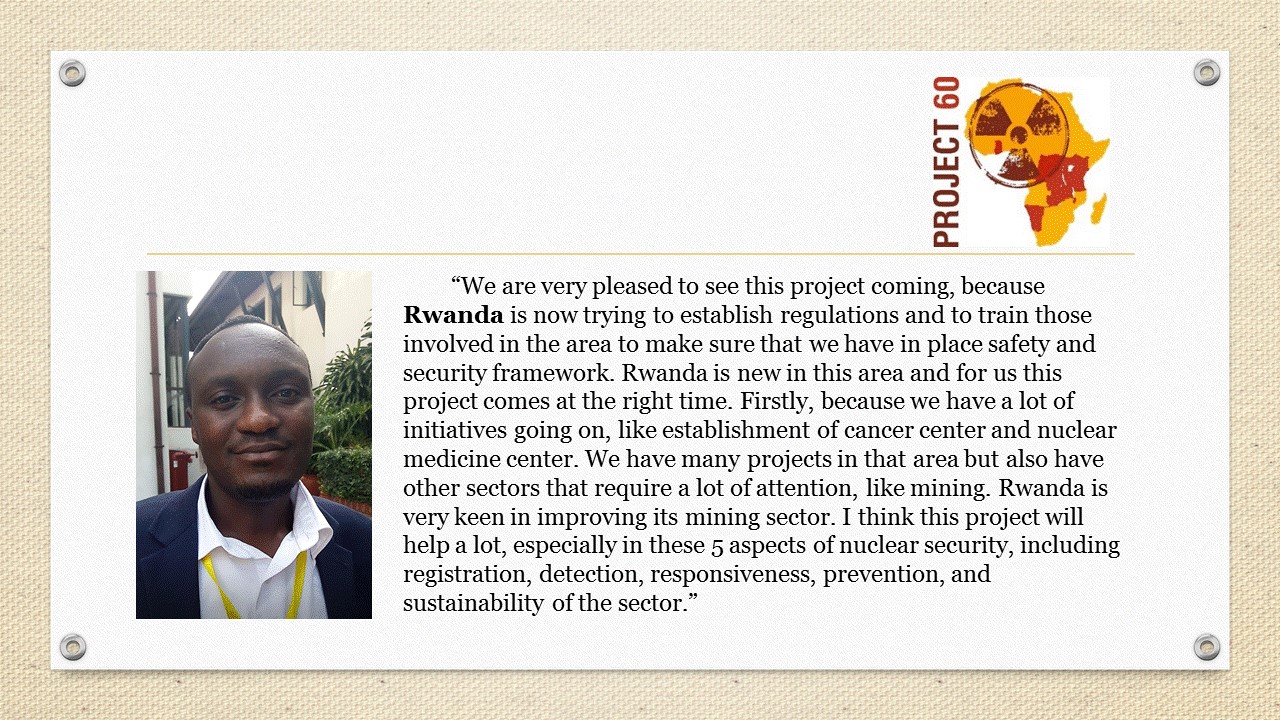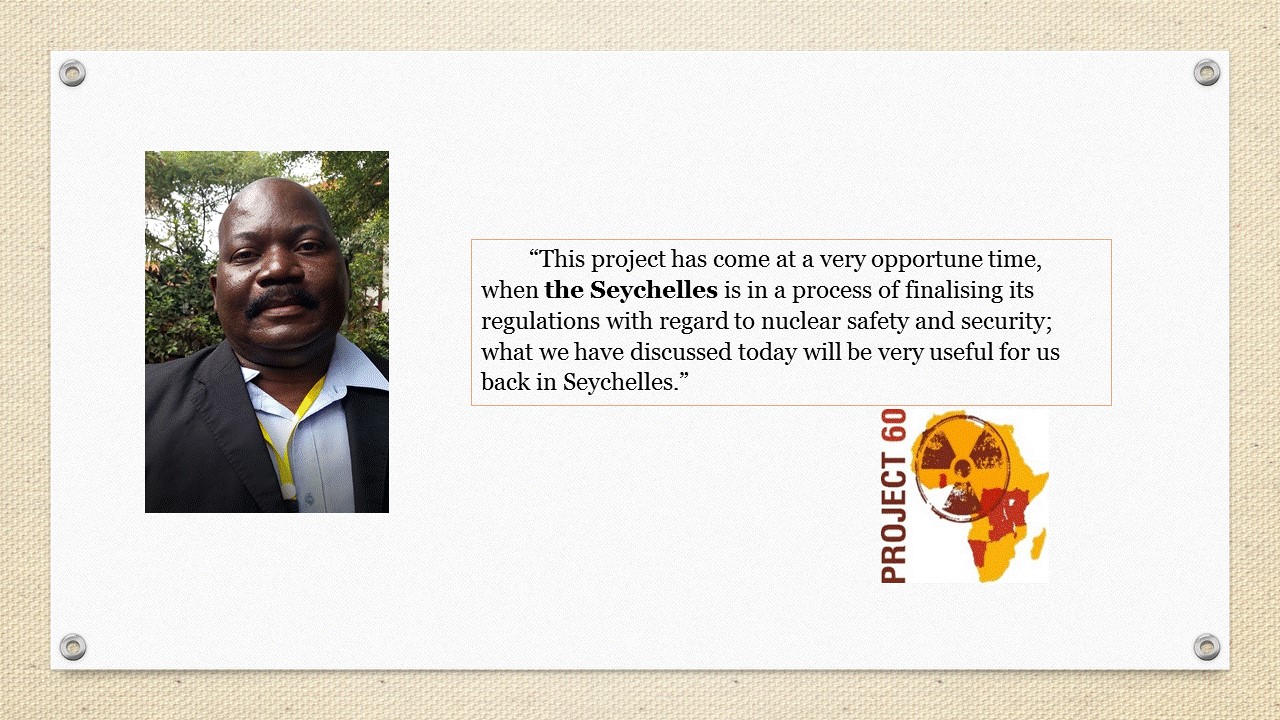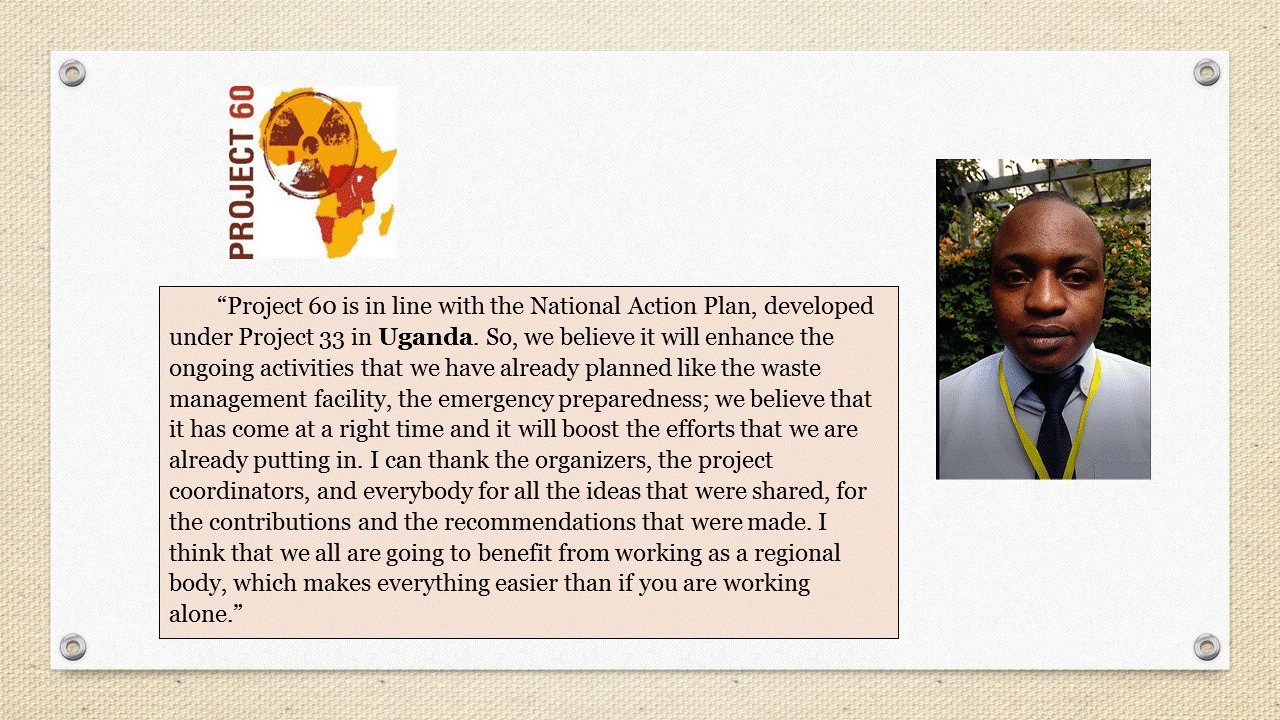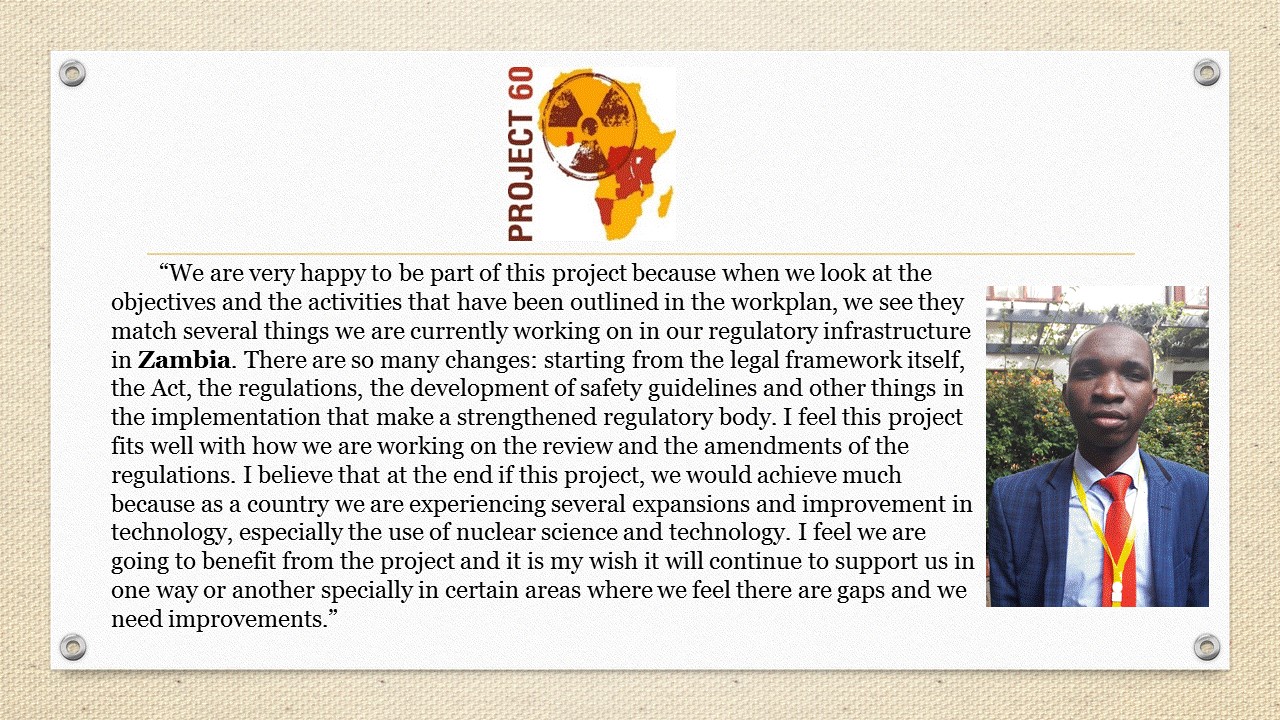The following countries, belonging to the EU CBRN Eastern and Central Africa (ECA) Centre of Excellence, participate in Project 60: Burundi, Democratic Republic of Congo, Ethiopia, Ghana, Kenya, Malawi, Rwanda, The Seychelles, Tanzania, Uganda, and Zambia. In addition, Namibia takes part as a country concerned with the transportation of Uranium ore.
The countries of the ECA region face radiological and nuclear risks arising from uranium mining, milling, processing and transportation as well as from the state of management of radioactive sources.
Radioactive sources are widely used in medicinal institutions and industries in all countries in the region. Their licensing is regulated, however, the handling and enforcement of their management according to their licensing conditions appears different in different countries. Especially the control towards the end of their economic lifetime frequently becomes unclear, which results in quite a few orphan sources. Such orphan sources represent a major risk if they fall under control of Non-State Actors such as organized crime syndicates or terrorist groups. This situation encompasses cross-border safety and security issues and calls for a strengthened international cooperation. Several countries have initiated programmes to develop a National Register for all radioactive sources, to identify all sources currently in the country, and to collect relevant data of all of them. Nevertheless, such registers have not been completed yet. The regulatory oversight of licensed radioactive sources, the regular inspection on their compliance with the requirements of their licences needs strengthening. Some of the countries developed a centralized storage for disused radioactive sources, others did not. This easily results in orphan sources that can become a serious safety and security risk.
All the countries of the ECA CBRN CoE region that are participating in Project 60 under the EU Instrument contributing to Stability and Peace (IcSP), will get assistance to harmonize their nuclear regulatory frameworks and develop efficient systems for accountancy and control of radioactive materials and radioactive sources, including the development of a dedicated border control systems. In addition, the project will provide support in detection, recovery and safe storage of orphan sources, as part of the development of national radioactive waste management policies in the concerned countries.
Uranium mining activities are ongoing and developing in sub-Saharan African states as part of their development policies. Experiences in other parts of the world show that sustainable uranium mining requires the application of best international practices and standards to avoid negative environmental impact and expensive remediation. Exporting uranium ore concentrate through several countries requires also harmonized legal frameworks and their synchronized implementation at border crossings to prevent illicit trafficking of radioactive materials. Uranium mining is also a non-proliferation issue as it is the first step of any fuel cycle. It is therefore submitted to nuclear safeguards and security considerations. Under the EU Instrument for Nuclear Safety Cooperation (INSC), a regional project MC 5.01/15B “Support for Southern African Countries in Nuclear Safety and Safeguards”, involving four pilot countries Malawi, Tanzania, Zambia and Namibia as well as the South African Development community (SADC) will be running in parallel with Project 60. At the focus of this pilot project are the following fields: licensing and regulatory oversight of uranium mining exploration, sustainable mining of uranium, uranium ore processing and handling, transporting and exporting of uranium concentrate.
Conceived as complementary to each other, the two initiatives illustrate the internationally recommended “Triple S” approach addressing simultaneously the nuclear safety, safeguards and security issues.
IMAGES to be included in this page:
Project 60 banner with the names of all participating countries
Photos from the inception meeting and the meeting in Brussels (with the posters)
Quotations from the national representatives:
Stakeholders speak
“We need to prepare ourselves in Namibia to be able to absorb the assistance that is forthcoming; I see it as a game changer.”
“Burundi expects that Project 60 will contribute to sensitize the public, educate our experts, and help with equipment at the cross points on the borders.”
“This project has come at a very opportune time, when Seychelles is in a process of finalising its regulations regarding nuclear safety and security.”
“We normally call the press to tell them what we are going to do in Ghana. And this is what I want to do with Project 60, because this is the only way to make the public aware of the objectives and the activities of the project.”“Thiskind of projects not only help build the capacity of each participating country, like Ethiopia, but also provide an opportunity for similar organizations in neighbouring countries to bring their resources together.”

